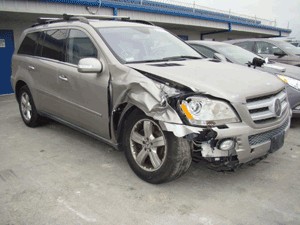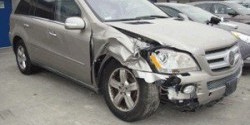Want Safer Driving?

Want Safer Driving? The Change Begins with You
With millions of cars on our roadways at any given time and some of the reckless drivers we encounter on a daily basis, it should come as no surprise that U.S. roads are dangerous. According to the most recent data from the National Highway Traffic Safety Administration (NHTSA), in 2015, 96 people died each day, and 6,700 were injured in car accidents.
No driver wants to become another statistic, but how do you reduce roadway fatalities and successfully achieve safer driving? The change begins with each driver on the road.
Breaking Bad Habits
Even if you have a perfect driving record and consider yourself to be a safe and responsible driver, there are probably a few changes you can make in the way you drive. Think about your typical commute. Do you encounter a lot of stop and go traffic? What do you do during that time?
If you eat breakfast, check your email, or even apply makeup as your car is idling in gridlock, you are driving distracted. Distracted driving is a major factor in many car accidents, but many drivers assume distracted driving only means texting and driving.
Some other bad driving habits to break include driving aggressively and failing to use proper signals or follow the speed limit.
Make Changes for Good
Bad habits can be hard to break so give yourself a little time to adapt and start small. If you look at your phone when you’re behind the wheel, put it out of reach. If you have a short temper behind the wheel or if driving makes you anxious, try some of these calming tips while driving.
Any changes you make for the good can become permanent over time and will make you a safer, more focused driver. If you are a parent of teen drivers, it’s even more important for you to model safe driving behavior as they are likely to make safer choices.
Become an Advocate for Safer Roads
While the small changes you make in the way you drive can make a difference, particularly in your community, it may not feel like enough of a noticeable change. Many of the U.S. roadways are in poor condition and can lead to damage to cars and be responsible for accidents.
The biggest obstacle that prevents road repairs and expansion from happening is a limited budget. Consider writing to your state legislators and voice your concern about the road conditions in your community and state.
If you notice a section of road that needs improvement, contact your Department of Transportation. While they may be aware of the problem, you may very well be alerting them to an issue.
Another way to become an advocate for safer roads is to consider taking a pledge with The National Coalition for Safer Roads (NCSR). NCSR helps to save lives and protect communities by stressing the importance of red-light, speed, and school bus stop arm safety cameras. Look for other organizations who advocate and educate about safe driving; consider joining the group.
 What The Insurance Company Doesn’t Tell You After You’ve Been In A Car Wreck
What The Insurance Company Doesn’t Tell You After You’ve Been In A Car Wreck
What the insurance company won't tell you after a car wreck could mean getting paid thousands less than what your vehicle is actually worth. Find out how to get paid for what your car is worth!



